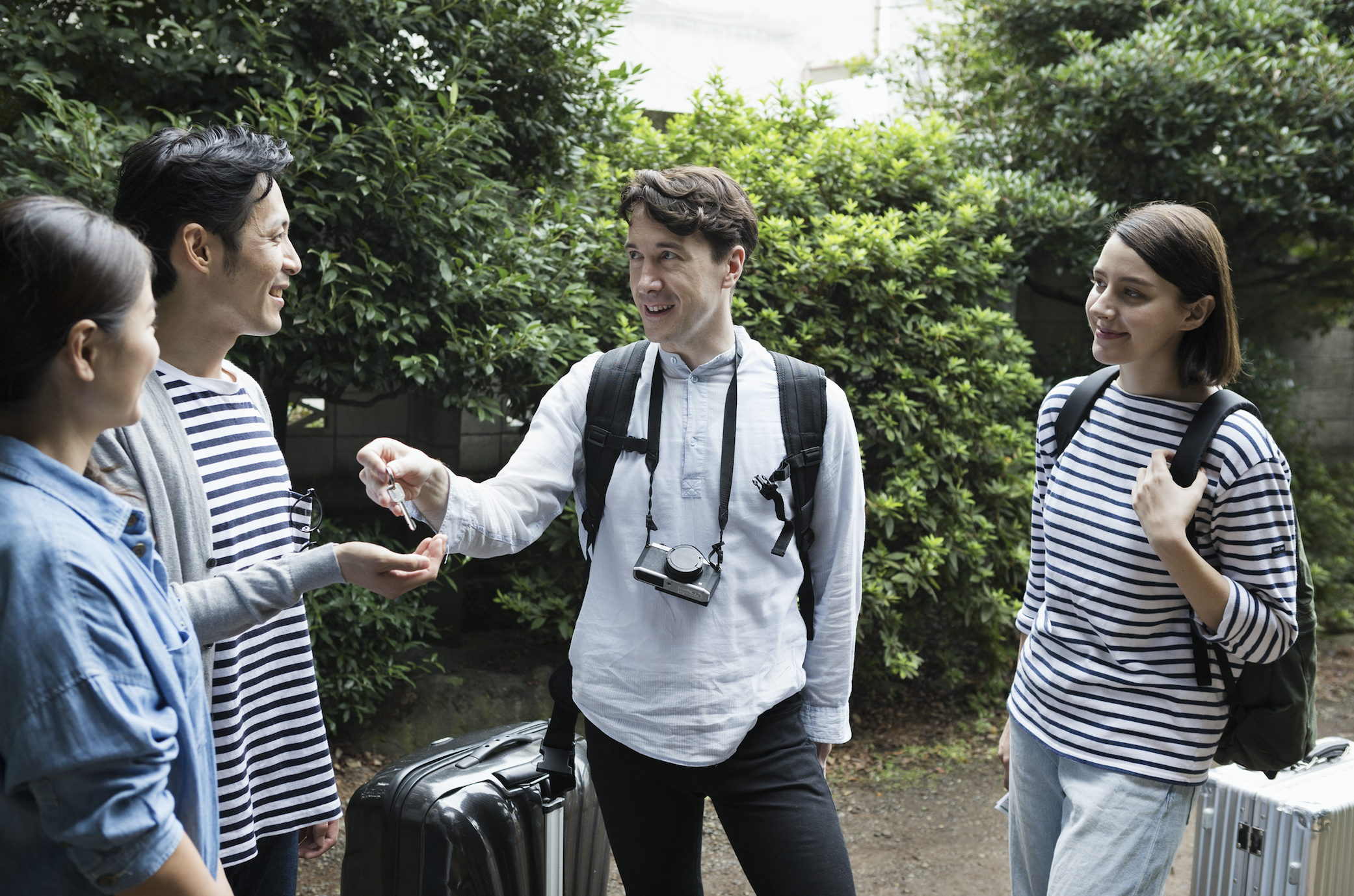
Exclusive with AAA on tourism accommodation regulation
Upon the release of a NSW Government paper on tourism accommodation regulation, the Accommodation Association of Australia (AAA) stated that there must be a level playing field for all providers of tourism accommodation. Accomnews spoke exclusively with AAA’s CEO Richard Munro about compliance, risks and regulations.
According to AAA, changes to the way that tourism accommodation is regulated must have consumer safety and job creation as top priorities. Accomnews asked Mr Munro whether most accommodation types are currently compliant when it comes to fire safety, building code requirements, insurance and disability access.
“The legislation is quite clear on what constitutes a compliant short-term accommodation provider, and the standard is set by the Australian Building Codes Board (ACBC), adopted into State government legislation, and enforced by local councils,” Mr Munro said.
With 547 local councils around Australia, he added that it can be difficult to enforce consistent standards.
“We welcome State governments reviewing and enforcing the legislation to ensure properties which have been purpose-built on the principles set out by the ABCB and in accordance with planning laws are able to operate and compete with similar products as opposed to part-time residential stock that do not comply,” he said.
One of the most significant challenges is terms of compliance is multiple residential apartments, or even entire buildings, owned by the same person and being put up for short-term letting through sharing economy websites, such as Airbnb.
“These are ‘quasi-hotels’,” Mr Munro explained, “but have little or no fire safety precautions, insurance, or disability access that traditional hotels and motels have in place.”
When asked whether Airbnb poses a risk to hotels and other accommodations, the first thing Mr Munro said was that the risks are multi-faceted.
“Airbnb might market itself as a way for consumers to earn a few extra dollars by renting out a room or their apartments on a short-term basis, but the reality is that there are problems associated with many properties which appear on Airbnb,” he said.
He explained that AAA has witnessed sub-standard accommodation, such as abandoned combi-vans left in council car parks being posted to the site. He believes this to be a clear statement by the company that as long as it makes money via commission, it doesn’t have a duty of care to its customers.
[pro_ad_display_adzone id=”15046″ align=”left” padding=”4″]“Airbnb has no standards when it comes to listings except a feedback forum, which is a bit late when things go terribly wrong. In regional areas, Airbnb is effectively taking jobs away from battling ‘mum-and-dad’ providers of tourism accommodation,” he said.
While hotels, motels and serviced apartments (HMSA) in regional areas employ chefs, cleaners and reception staff, Airbnb does not employ one person at any of its properties in regional areas, bar the ‘host’ who owns the accommodation. Strict rules and compliance could potentially impact the number of individuals choosing to run their accommodation business through Airbnb or other residential style premises.
“When it comes to regulation, there must be a level playing field for all providers of tourism accommodation. If not, consumer safety and jobs are at risk,” he said.
For operators that have invested, planned and complied with the building code, as well as employed staff and offered accessible rooms will see a clean-up of “rogue operators” as a positive according to Mr Munro.
“The compliant operators will also be protecting the strong recognition Australia has around the world for keeping tourist safe. Our message to visitors to regional areas is: don’t risk staying in dodgy accommodation sourced through sharing economy platforms which seem to have little or no regard for consumers.”
He said that the Accommodation Association of Australia, which represents members’ interests and works with all levels of government, does not support prohibition.
“That’s not realistic,” he said. “The accommodation industry does not have any issue with a landlord sharing a room within their home for an occasional stay, which is the scenario Airbnb spends millions, if not billions, of dollars portraying. A more accurate picture is the majority of listing are complete units or dwellings directly competing with compliant operators, with no tax being paid to support the tourism marketing that Airbnb is free-riding on with its sometimes sub-standard accommodation.”
He concluded that AAA would like to hear more from unions on their view on jobs being dissolved, particularly in regional areas where most of its members operate, as well as disability advocacy groups.
“Airbnb boasts huge numbers in Australia, yet it does not provide any of the facilities that all of our members are obligated to offer as part of their compliance requirements.”
Lauren Butler is a junior journalist here at accomnews. You can reach her at any time with news, opinions and submissions.








Well said Richard, the question all of us in the hotel industry should be asking is how has Airbnb and other unregulated short-term operators been able to get away with such clearly detrimental (to residents, communities, consumers and the tourism industry) behaviour when the ‘official’ tourism industry is propping up so many state, territory and local economies? Surely State Governments – who make the appropriate legislation – can see the “bleeding obvious”? Surely they haven’t been blinded by the lobbying of Airbnb that they are really about helping Aunt Dorothy fund her hip replacement by offering the spare room in the house? Surely they can’t be that naive? Or are they?
Lauren, you have made no mention of approved bed and breakfast operators in City of Sydney and Inner West Council. The sharing economy is in effect rendering our businesses obsolete. Just one illegal airbnb booking in the neighbourhood every weekend means one legal room left vacant every weekend. Times that by 300 and you have an empty bed and breakfast every weekend and potentially every day of the year. We are the true victims of illegal STRs.
Agree with all points raised.
I think that all property owners who are earning an income from short term letting including holiday letting should have to register for GST.
This would enable the ATO to ensure that the property owner is complying with taxation obligations and that the property owner is chaging a rate inclusive of GST as is the case with the majority of accommodaton businesses.
The ATO has ensured that all Uber drivers have to be registered for GST and the same should apply to property owners who are using AirBNB or similar services.
The more important story on regulatory review is the failure of the The Australian Competition and Consumer Commission (ACCC) to promote competition and fair trade in the online travel market and sadly that market is now a victim to the influence of two very large and powerful international organisations.
In my opinion the Federal Government needs to change competition law to force the ACCC to act or consumers, businesses and the community will pay the price.
Unfortunately the ACCC has been hoodwinked by the two major players in the online travel market to reduce competition, and increase costs for consumers, businesses and the community by using the argument they are creating a price comparison marketplace for accommodation.
Two global Online Travel Agents (OTAs), Priceline (which owns Booking.com) and Expedia (which owns Wotif.com Trivago and Hotels.com) globally process accommodation bookings worth US$154 billion each year.
In Australia they collectively channel 70% of online reservations for the $10 Billion plus per annum accommodation industry in Australia for a margin of between 12-26% on sales.
These two companies generate global annual incomes of more than US$22 Billion in commission from accommodation bookings making this a serious issue worthy of consideration by all governments which claim they are interested in open markets.
Priceline and Expedia are now Google’s two most important advertisers and analysts (see the emarketer.com report) suggesting their annual Google Adwords expenditure globally is now over US$3Billion, but I suspect it is higher than that figure as they no longer report on this expenditure and growth on this spending has been parabolic.
The relationship of the OTAs with Google allows them to dominate the Google search results in every market they operate in. To check this, using Google Type in the name of any accommodation provider listed with either of the OTA’s and their Adwords spend will result in them coming up first in every search result in every market.
This means the OTAs are actively competing with every supplier they have, to win business from them in every market they operate in, and contradicts the view of the ACCC’s Chair Mr Rod Sims that they are creating a price comparison market-place for accommodation providers.
The ACCC continues to allow the OTA’s to demand that suppliers comply with a controversial clause referred to as “a skinny rate parity clause” which prevents suppliers from offering lower prices online to customers who book direct in spite of the fact that direct bookings have no commission costs to cover.
This support by the ACCC for the skinny rate parity clause continues despite many European competition bodies outlawing the clause.
It is also surprising that this support for the skinny rate parity clause continues in apparent contradiction of the ACCC’s argument in the High Court (Flight Centre Case) that a travel agent seeking agreement on price parity with airlines who offer flights directly to consumers from their own website amounts to price fixing.
In commenting on the High Court decision, on 14 December 2016, Mr Sims said “The ACCC pursued this matter because we were concerned that Flight Centre’s conduct in this case affected the competitive process. At the core of the matter is the question of whether Flight Centre and the airlines are legally considered competitors. The ACCC has always maintained that they are in competition with one another to sell flights to consumers.”
“This decision will provide important guidance for the future application of competition laws in Australia to other situations where competing offers are made directly to consumers by both agents and their principals. It is likely to be particularly relevant when businesses make online sales in competition with their agents.”
It is sad that Federal Government legislative change to outlaw concerted practices will be necessary to bring the ACCC around to seeing the OTA’s are no different from Flight Centre in what they are doing.
Australian travellers booking through OTA’s are inflating accommodation costs by approximately $1.5 Billion each year.
Accommodation providers are now very dependent on these sales channels, it is fair to ask whether accommodation providers are intimidated by the market share of these operators and therefore afraid to challenge the rate parity clause. I suspect these may be the reasons why the silence from individual operators around this issue is deafening.
This secret deal on parity pricing protects the interests of the OTAs and is contrary to the interests of Australian consumers, businesses and the community.
Thank goodness something is finally happening . These on line sites need to be given the flick. We all did fine before they were invented and unfortunately the general public have been blinded by them and modern technology . As I see it all we need is to have one web site for the country . For us www. Australia… This site would then be broken down into states, regions. All members of the Tourism bodies would be on it with a link to their own web site where you can then make a direct booking, We have it in existence already so why are we allowing people from all around the world to use these multi national companies, who up until recently were taking all the money out of the country. It obviously needs promoting. If we could all band together and refuse to go on there sites it would all change overnight. Like I said.Before these sites were invented we all did very well people from all around the world found us without computers. We need to take a step back ,take advantage of the technology,keep it in our own back yard,let the workers be rewarded and the public save their money
We previously operated a motel. Now we have a lovely property with a self contained unit that we have on AirBNB. Also promoted via social media and working closely with a motel operator (they refer to us when they are full, we send to them when our unit is full) so it doesn’t need to be a fight between the two.
Also, although we don’t like the star rating system we agree that AirBNB needs to come into line.
ACCC win the Flight Centre case in December 16 which directly contradicts the price parity clause that OTAs impose on hotels and yet over a year later there has not been one word from the ACCC on this issue!
The non action by the ACCC is a disgrace and Rod Simms must be held accountable on this. It is costing hotels in more commissions paid which comes straight off the bottom line and thus lower taxes paid while the big two OTAs hoover up the cash and take it back to their low tax country of origin. Consumers are also missing out on lower prices that would be on the hotels website. Price parity clauses would be costing hotels, government and consumers hundreds of millions of dollars each year yet the regulator does nothing!
THe ACCC needs a rocket.